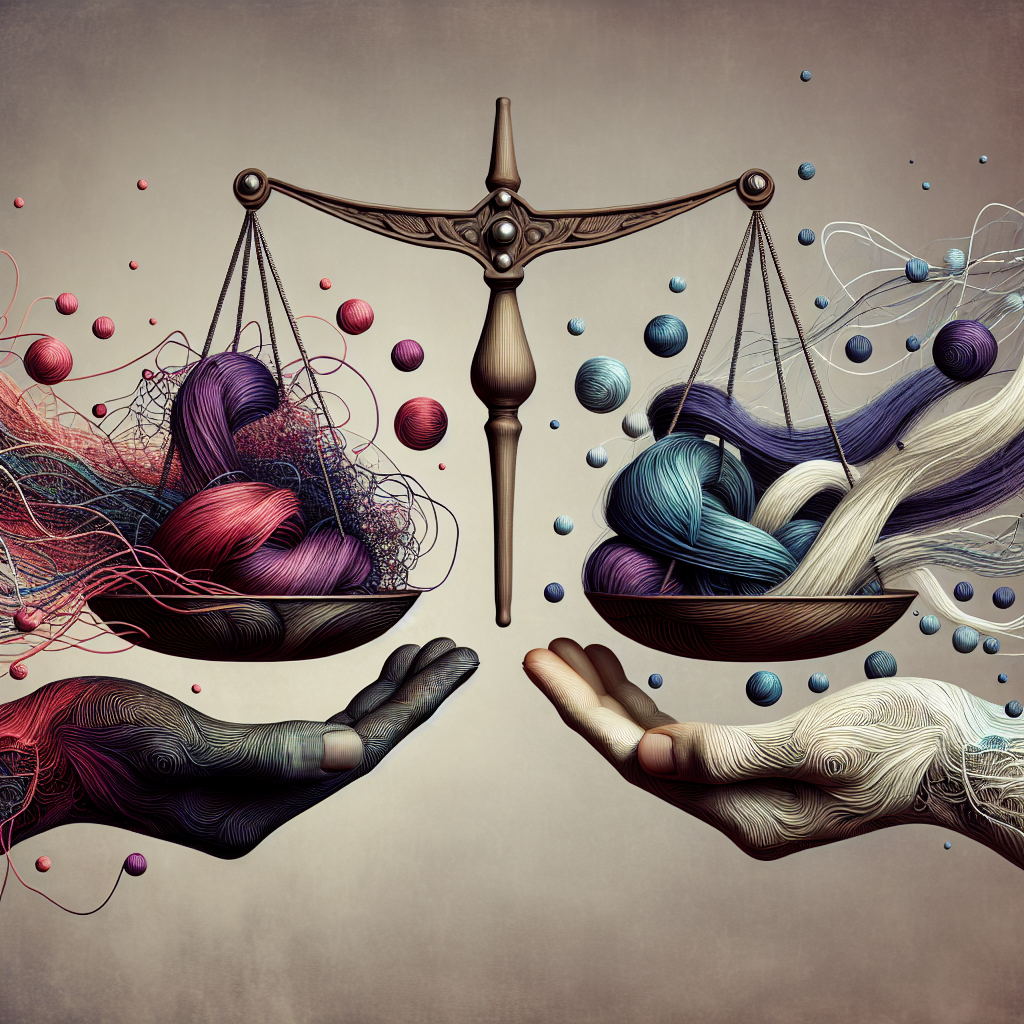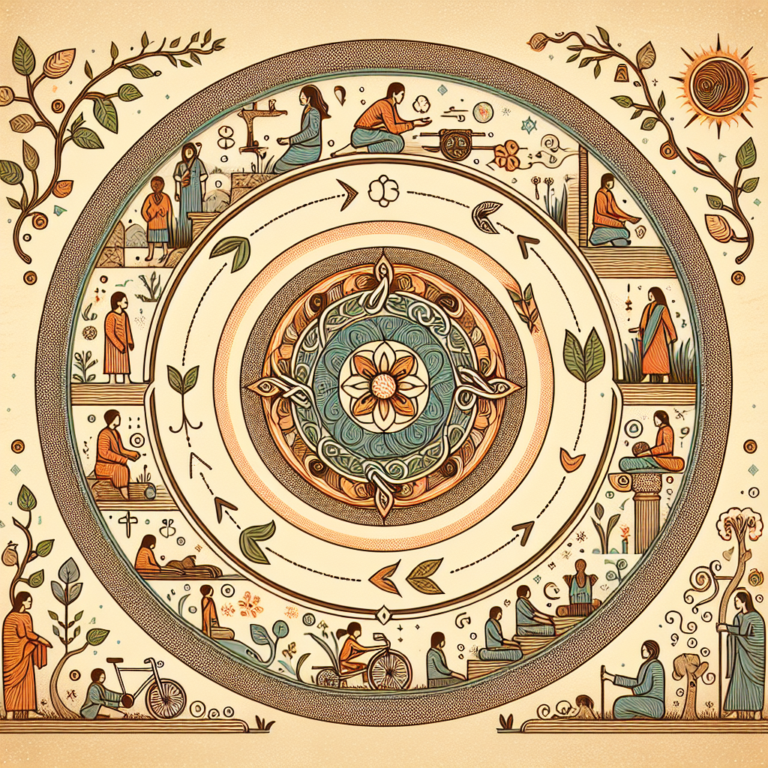Life is a complex tapestry woven with various threads of experiences, emotions, and moral actions. Among these threads, two stand out for their profound impact on our existence: karma and forgiveness. These concepts, deeply rooted in various philosophical and spiritual traditions, serve as guiding principles that shape our journey through life.
Understanding Karma: The Law of Cause and Effect
Karma, originating from the Sanskrit word meaning "action," encompasses the law of cause and effect. In simple terms, it suggests that every action we take—be it thought, word, or deed—sets into motion a corresponding consequence. This isn’t merely a philosophical notion; many people believe that the energy we emit through our actions returns to us, influencing our fate and experiences.
The implications of karma stretch beyond individual actions. They can accumulate through our intentions, leading to either positive or negative outcomes in our lives. For instance, an act of kindness may generate goodwill towards us, rather like a boomerang, while a harmful deed may set in motion a cycle of repercussions.
The understanding of karma encourages ethical and mindful living. The concept implores us to consider the ripple effects our actions create—not just for ourselves but also for others. For example, if one were to act with malice or dishonesty, they might face repercussions not only in the form of external consequences but also in their internal emotional state.
The Essence of Forgiveness: Letting Go to Heal
Forgiveness is often viewed as a personal act of liberation. At its core, forgiveness involves the conscious decision to release feelings of resentment or vengeance towards someone who has caused us harm. It is not about excusing the act or reconciling with the perpetrator; instead, it focuses on freeing oneself from the burden of negative emotions.
Forgiveness is deeply interlinked with the practice of self-care. Holding on to anger and resentment can have detrimental effects on our mental and physical health. Studies have shown that those who embrace forgiveness experience lower levels of anxiety, depression, and stress, leading to a greater sense of emotional peace.
Furthermore, forgiveness has a transformative power. When we forgive others, we elevate our own energy and promote healing—not only for ourselves but also for the person we forgive. This creates a positive cycle, allowing both parties to move forward with their lives.
The Intersection of Karma and Forgiveness
At first glance, karma and forgiveness may seem like opposing forces—one holding the weight of consequence, and the other embodying healing and release. However, they intertwine in a way that accentuates the moral fabric of life.
Karma and Responsibility: Understanding karma helps individuals take responsibility for their actions. By recognizing that every deed carries consequences, we become more mindful, fostering a sense of empathy and compassion.
Forgiveness as a Response to Negative Karma: When we experience harm caused by others, it’s easy to cling to feelings of betrayal and anger. However, forgiveness enables us to break the cycle of negative karma. By letting go of resentment, we not only heal ourselves but also extend positive energy back into the universe, potentially mitigating the negative impact of another’s actions.
Creating Positive Karma: Forgiveness can lead to the creation of positive karma. When we choose to forgive, we shift our energy from one of victimhood to one of empowerment. This shift not only transforms our own experience but can also foster a culture of forgiveness, influencing others to act in compassion and understanding.
- Forgiving Ourselves: Often, the hardest person to forgive is oneself. Acknowledging our flaws and mistakes is critical to personal growth. Recognizing that we are all prone to making errors allows us to process our experiences more compassionately. By forgiving ourselves, we can release the guilt that weighs down our psyche and generate positive karma for the future.
The Balancing Act
The interplay between karma and forgiveness can be likened to a delicate balancing act. Life’s challenges often force us to confront the consequences of our actions, leading to a deeper understanding of our personal journeys. We must learn to navigate these experiences with grace and mindfulness.
In moments of suffering, it is important to remember that every experience carries a lesson. Embracing this perspective allows us to find meaning in our hardships and fosters resilience. The wisdom of karma teaches that while we may experience pain, we also have the power to create positive outcomes through our responses—primarily through forgiveness.
This balancing act requires heart and soul, as we must hold accountability for our actions while embracing empathy towards ourselves and others. In doing so, we can weave a rich tapestry of existence marked by love, understanding, and the courage to forgive.
FAQs
Q: Is karma a deterministic system?
A: Not necessarily. While karma implies that our actions result in consequences, it does not dictate an unchangeable fate. The concept emphasizes the potential for change and growth, allowing individuals to alter their paths through conscious choices.
Q: Can you forgive someone and still seek justice?
A: Yes. Forgiveness does not mean condoning harmful behavior or neglecting justice. One can forgive while still advocating for accountability and resolution of harm.
Q: Is it possible to cancel out negative karma through forgiveness?
A: While forgiveness can promote healing and shift your personal energy, the notion of canceling out negative karma is complex. It’s believed that acknowledging one’s actions and striving to make amends can help lighten the weight of past deeds.
Q: How do I start the process of forgiveness?
A: Begin by reflecting on your feelings. Acknowledge the hurt without judgment, and consider the benefits of forgiveness—for yourself. It may also help to communicate your feelings to the person involved, if possible.
Q: Can forgiveness happen without reconciliation?
A: Absolutely. Forgiveness is a personal act that does not require the other party’s involvement. You can choose to forgive someone internally without re-establishing a relationship.
In conclusion, the threads of karma and forgiveness intertwine to create a complex design of our life experiences. By understanding their nuances, we cultivate a more fulfilling existence characterized by compassion, accountability, and emotional freedom. Embracing both concepts allows us to navigate life’s challenges with grace, leading to a beautiful balance in our personal journeys.
Of course! What kind of prompt are you looking for? It could be for creative writing, brainstorming ideas, or something else entirely. Let me know how I can help!, #Interwoven #Threads #Karma #Forgiveness #Understanding #Lifes #Balancing #Act, #Interwoven #Threads #Karma #Forgiveness #Understanding #Lifes #Balancing #Act, 1735690488, the-interwoven-threads-of-karma-and-forgiveness-understanding-lifes-balancing-act





